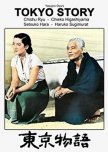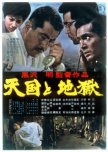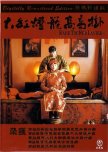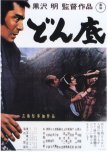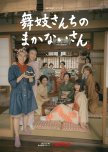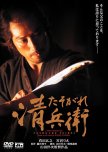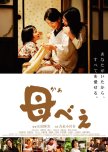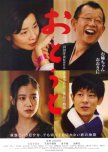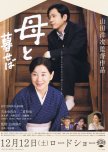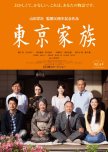When the patriarch of the Toda family suddenly dies, his widow discovers that he has left her with nothing but debt and married children who are unwilling to support her--except for her most thoughtful son, just returned from China. (Source: IMDb) Edit Translation
- English
- magyar / magyar nyelv
- dansk
- Norsk
- Native Title: 戸田家の兄妹
- Also Known As: The Brothers and Sisters of the Toda Family , The Siblings of the Toda Family , Todake no Kyoudai , Todake no Kyodai
- Screenwriter & Director: Ozu Yasujiro
- Screenwriter: Ikeda Tadao
- Genres: Historical, Drama
Where to Watch Brothers and Sisters of the Toda Family
Subscription (sub)
Cast & Credits
- Katsuragi Fumiko[Mother]Main Role
- Fujino HideoToda Shintaro [Father]Support Role
- Yoshikawa MitsukoChizuru [Eldest daughter]Support Role
- Saito TatsuoShinichiro [Eldest son]Support Role
- Miyake KunikoKazuko [Shinichiro's wife]Support Role
- Saburi ShinShojiro [Second son]Support Role
Reviews

This review may contain spoilers
"Everyone has a weakness. Even a hero."
During WWII and after Ozu's first military tour he filmed The Brothers and Sisters of the Toda Family. Ozu ran afoul of censors concerned that he didn't mention the war in a wartime film, but his emphasis on filial piety and the need to take care of aged parents smoothed things over. His biggest concession was sending the youngest son to China to work in the land of opportunity. Pretty sure the Chinese did not think of the Japanese in their homeland the same way but I will try to look at the merits of the film aside from that disconcerting historical context.The Toda patriarch suddenly dies in his mansion after a big family birthday party. The adult children are shocked to discover that the wealthy businessman was nearly bankrupt. After everything but a worthless villa near the ocean is sold off to pay his debt, the mother and youngest daughter, Setsuko, are left homeless. The eldest son takes responsibility allowing the two women, plus the old family maid, to come live with his family. The youngest son, Shojiro, decides to seek his fortune and prove to his father that he is capable and scurries off to China to make his fortune. The eldest son's wife treats his mother and sister like unwelcome guests no matter how unobtrusive they try to be.
On they move to the eldest daughter's house. She immediately bristles because her son loves his grandmother so much that she feels she will lose authority in the house. When Setsuko wants to find a job as she and her mother are penniless, the family puts their foot down. They would be embarrassed for her to be a clerk. More embarrassed than their father bankrupting himself? Mother, daughter, and devoted servant end up finding shelter in the deteriorating villa.
For the one-year anniversary of the patriarch's death, Shojiro makes his way home. At a formal remembrance dinner, he calls the family out on the carpet for treating their mother so shabbily, leaving no one unscathed. "Children should be kind and warm to their mother…You talk without doing anything." The chastised family members abandon the expensive dinner with only the small trio and son left in the room to enjoy the meal in peace. Shojiro believes the truth-filled disruption may bring more harmony and better siblings in the future. Though the women seem to be happy living by the sea, Shojiro insists they come to live in China with him. Given the times, they had little choice but to pack their bags again, at least Shojiro wanted them to be near him.
Ozu had asked for more money to film this movie. The studio responded by giving him less time to film and wanting to see the finished project before increasing his salary. The Toda Family went on to be quite successful partly because of Ozu's skill but also because of the famous stars Saburi Shin as the youngest son Shojiro and Takamine Mieko as the youngest daughter Setsuko. Ozu had largely solidified his style for this film---the low angle shots, meticulously composed frames, lingering shots over geometric rooms and objects (often the father's plants and bird), and more of face straight on to camera shots. Ozu was more concerned with story than acting, and felt that excessive drama was not needed for an audience to be emotionally touched, a method he sought to convey here.
As he would with other films, the disintegration of the family and traditional values were beginning to show. And as in Tokyo Story, a parent was treated as an inconvenience. After recently watching Kurosawa's Ran (based on King Lear), I was reminded of Hidetora finding no welcome mat rolled out by two of his sons when he was homeless. Shojiro, like Saburo, became the prodigal son who lovingly welcomed the parent, albeit with a happier ending.
The film reflected Ozu's life in some ways. After his father's death he took both his mother and a younger brother in. At the end of the film, a bashful Shojiro literally ran away to hide at the beach before a matchmaking date. "Everyone has a weakness. Even a hero." Ozu was a lifelong bachelor who lived with his mother until she died. A parent's aloneness after a death or a child marrying often played into his stories.
Ozu also tackled class distinctions. When Setsuko and her friend Tokiko met for lunch, Setsuko discussed wanting to find a job. Tokiko informed her that taking orders is much different from giving orders and would be difficult for someone who had never been exposed to that way of life. Shojiro told Setsuko that in China no one would look down upon her for working or doing whatever she wanted. The privileged upper class was seen in lower regard, especially in the disregard they had for the elderly and servants and traditional values.
After watching a number of Ozu's silent films which portrayed a looser filming style it was interesting to see that famous Ozu formula begin to firmly coalesce in the The Brothers and Sisters of the Toda Family. Despite being over 80 years old the film remains timely. Children still argue over who is going to take care of an aging parent. People still focus on their own lives forgetting there are others in need of love, acceptance, and something as basic as shelter. Thankfully, there also people who will open their hearts and homes to those in need, especially for a beloved parent. The lack of color did not take away from the beauty of Ozu's meditative and architectural shots, he always knew how to use light and shadow to his advantage. A timely story, well-acted, and skillfully filmed made for an entertaining film.
7/20/23
Was this review helpful to you?
Recent Discussions
Be the first to create a discussion for Brothers and Sisters of the Toda Family

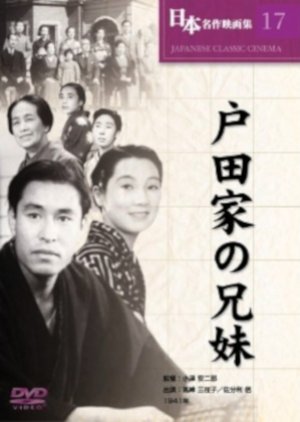

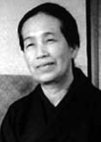
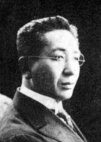
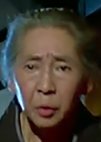
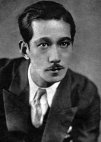
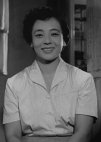
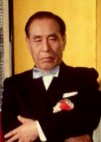
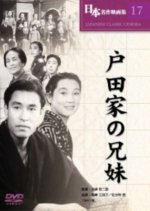
 1
1